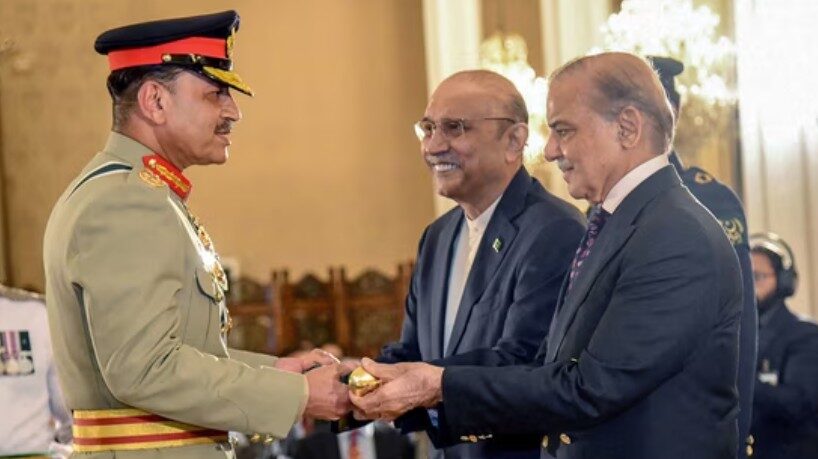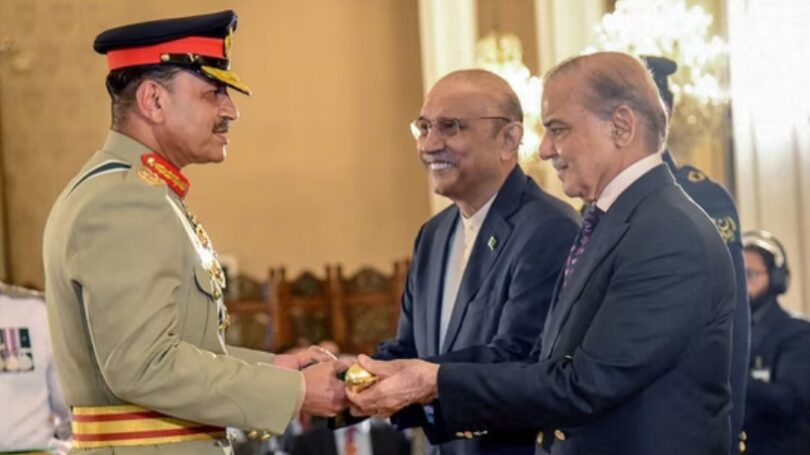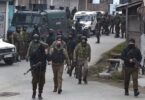Introduction
Rumors of a military coup shaping Pakistan’s political landscape has flooded the media again. The speculation revolves around General Asim Munir, the Pakistan’s COAS, and President Asif Ali Zardari, head of a China-leaning coalition who is reportedly defending the China–Pakistan Economic Corridor (CPEC). Reports emerging across Pakistani and international media suggest widening fractures between the civilian leadership and the military establishment — a similar historical pattern in Pakistan’s turbulent political past. There are claims that Munir has struck a clandestine deal with Washington to undermine CPEC. However, verified evidence remains limited. Yet, the broader tension between Islamabad’s eastern and western alignments reflects deep shifts in Pakistan’s civil–military power balance and its geopolitical standing.
The Current Rift: Competing Alignments
President Zardari’s administration has sought to revitalize relations with China through CPEC and other Belt and Road projects. In a stark contrast, General Munir’s series of diplomatic and defense related visits to the United States in 2025 have raised eyebrows especially for their timing and scope. Though these meetings are regarded as routine defense diplomacy, they are being interpreted by analysts as signaling a renewed receptivity towards Washington or a possible effort on Munir’s part to restate military primacy in formulating the foreign relations. Meanwhile, Bilawal Bhutto Zardari has whisked up a controversy after he remarked that Pakistan was willing to extradite “individuals of concern” to India as a goodwill gesture. The statement was interpreted as a reference to Hafiz Saeed, the mastermind of the 2008 Mumbai terror attacks. Bilawal’s statement has reportedly drawn strong backlash and criticism from the Pakistani nationalist circles and militant sympathizers, highlighting the fragile domestic consensus on Pakistan’s regional stance.
Rumors, Denials, and Information Warfare
Multiple media outlets, including Firstpost and Moneycontrol, have reported on the proliferation of rumors about a possible “silent coup” or “soft removal” of President Zardari. These reports emphasize that the speculation remains unverified — no evidence of troop mobilization, emergency decrees, or mass detentions has surfaced. But it may also be expected as means to squash the already brittle nature of Pakistan’s crumbling political development. The Pakistan Army’s media wing (ISPR) has publicly dismissed suggestions of a coup, pledging its commitment to the Constitution and democratic process. However, historical precedence and the army’s dominant institutional role offers strong credibility to public intuition.

A Legacy of Intervention: Pakistan’s Coup History
Since independence in 1947, Pakistan has vacillated between civilian interludes and extended military rule. The current inhibitions can be deciphered from past developments:
1. 1958 – Ayub Khan’s Takeover: Pakistan’s first coup unfolded when General Ayub Khan deposed President Iskander Mirza, citing corruption and political disarray. Ayub established a controlled presidential system that set the pattern for military tutelage over civilian authority.
2. 1977 – Zia-ul-Haq’s Martial Law: Accusing Prime Minister Zulfikar Ali Bhutto of election rigging, General Zia-ul-Haq seized power and imposed martial law. His eleven-year regime Islamized Pakistan’s legal framework and deeply entrenched the army’s role in politics.
3. 1999 – Musharraf’s Bloodless Coup: General Pervez Musharraf removed Prime Minister Nawaz Sharif following the Kargil War fallout. Presenting himself as a reformer in close conjunction with the United States in the post-9/11 era, Musharraf’s rule heavily focused on Pakistan’s alignment with Washington during the War on Terror.
Munir’s Position: Power and Controversy
Munir’s tenure has already been marked by controversy. Investigative journalist Ahmad Noorani has accused the COAS of nepotism and cronyism in appointments. Predictably, Noorani’s family faced raids and alleged intimidation. Furthermore, past accusations which included threats to several officers’ families during the May 2023 unrest have only reinforced perceptions of Munir’s hardline command style. Such reports have contributed to Munir’s image as a polarizing figure. His expanding diplomatic visibility supports the perception of the COAS making efforts to consolidate an authority beyond traditional military boundaries.
Geopolitics and Resource Narratives
According to some commentators, Munir has “promised” to sell Pakistan’s natural resources to the United States or intends to “kill” CPEC. These developments may appear to rise from Pakistan’s broader anxiety over foreign dependency and the rivalry between Chinese and Western investments in its economy. However, Pakistan’s mineral wealth in Balochistan has become a flashpoint. Local leaders accuse both domestic elites and foreign actors of exploiting resources without equitable benefit-sharing. This raises narratives about foreign deals being struck behind closed doors — a sentiment expected to be weaponized in Pakistan’s volatile political discourse.
The Civil–Military Paradox
Pakistan’s foundational paradox endures: a military that projects itself as guardian of national stability and a civilian leadership that strives to assert its complete sovereignty. The recent speculations do expose the little change in developments since the first coup in 1958. Every generation sees a new cycle: civilian disarray, economic stress, foreign pressure, and a military establishment poised as the ultimate arbiter. Analysts have warned regardless of an overt coup, Pakistan risks a “hybrid regime relapse” — where military influence grows informally while democratic institutions collapse. Such gradual militarization, often masked by constitutional appearances, may be more enduring and less visible than tanks on the streets.
Conclusion
Pakistan’s latest power struggle reveals a blend of imminent coups and structural fragility. The rumored Asim Munir–Zardari confrontation reflects deeper questions about Pakistan’s geopolitical orientation, resource sovereignty, and the balance of civil–military authority. Whether Pakistan avoids repeating its history will depend on the maturity of its institutions — and on whether its generals can resist the temptation to “rescue” democracy once again.
If the military under Munir seeks to subordinate the civilian government (Zardari/PPP), we may see major developments in regards to emergency powers, re-interpretation of martial law powers, or overt supervision of the civilian cabinet by the security establishment, namely the Inter Service Intelligence (ISI), which has a long history of interfering with domestic and foreign policies, or army channels. Pakistan may oscillate between China and the US. Discussions of resource sale (e.g., minerals, oil, gas, strategic ports) to the U.S. would force legitimacy questions.
Bilawal’s extradition remarks may be a signal of diplomacy, but actual change will require institutional buy-in (military, judiciary, intelligence). Resistance from militant networks and establishment factions remains a major barrier.
Economic malaise, inflation, ethnic fissures (especially in Khyber Pakhtunkhwa/Pashtun belt) may be leveraged by actors seeking legitimacy.
References
1. Firstpost, “Asim Munir and Zardari: Coup Rumours Gain Ground,” 2025.
2. India TV News, “Bilawal Bhutto Hints at Extraditing Individuals to India,” July 2025.
3. Moneycontrol, “Coup Whisper Grows Louder in Pakistan: Is General Munir Preparing to Dethrone Zardari?” 2025.
4. Inter-Services Public Relations (ISPR), Official Statement on Civil-Military Relations, 2025.
5. Hasan Askari Rizvi, The Military and Politics in Pakistan 1947–1997, Sang-e-Meel, 2000.
6. Lawrence Ziring, Pakistan in the Twentieth Century: A Political History, Oxford University Press, 1997.
7. Dawn, “1999 Coup: How Musharraf Took Power,” October 1999.
8. The Friday Times, “Ahmad Noorani and the Cost of Investigating Power,” February 2025.
9. Zalmay Khalilzad, Statement on Pakistan’s Military Conduct, 2023.
10. NewsBytes Pakistan, “Rumours of Resource Deals and Power Shifts in Islamabad,” August 2025.
11. Al Jazeera English, “Balochistan’s Uneven Resource Wealth and Political Alienation,” 2024.
More on Afghanistan and Pakistan developments:
India’s Strategic Engagement with the Taliban: Realignment and Implications for Pakistan: https://www.thestrategicperspective.org/indias-strategic-engagement-with-the-taliban-realignment-and-implications-for-pakistan/
Between Partnership and Antagonism: Pakistan–Taliban Relations since 2021: https://www.thestrategicperspective.org/between-partnership-and-antagonism-pakistan-taliban-relations-since-2021/
Policy Analysis: Pakistan–Taliban Relations and the October 2025 Ceasefire — Strategic Fracture or Diplomatic Reset? https://www.thestrategicperspective.org/policy-analysis-pakistan-taliban-relations-and-the-october-2025-ceasefire-strategic-failure-or-diplomatic-reset/
US-Taliban Scrimmage over the Afghan Bagram Air base: https://www.thestrategicperspective.org/us-taliban-scrimmage-over-the-afghan-bagram-air-base/
Pakistan’s Operation Sarbakaf in Khyber Pakhtunkwa: https://www.thestrategicperspective.org/pakistans-operation-sarbakaf-in-khyber-pakhtunkwa/
Uzbekistan, Pakistan and Afghanistan Sign Agreement on Trans-Afghan Railway: https://www.thestrategicperspective.org/uzbekistan-pakistan-and-afghanistan-sign-agreement-on-trans-afghan-railway/
NIA files supplementary charge sheet against Pakistani Canadian terrorist Tahawwur Rana responsible for 26/11 attacks: https://www.thestrategicperspective.org/nia-files-supplementary-charge-sheet-against-pakistani-canadian-terrorist/
Will FATF bell the Pakistani cat: https://www.thestrategicperspective.org/will-fatf-bell-the-pakistani-cat/
How Pakistan institutionalised lies and became a terror terminus: https://www.thestrategicperspective.org/how-pakistan-institutionalized-lies-and-became-terror-terminus/





![Pakistan and Saudi Arabia signed a defence agreement on September 17 in Riyadh [Handout/Pakistan Prime Minister's Office]](https://www.thestrategicperspective.org/wp-content/uploads/2026/01/pak-saudi-145x100.jpg)




